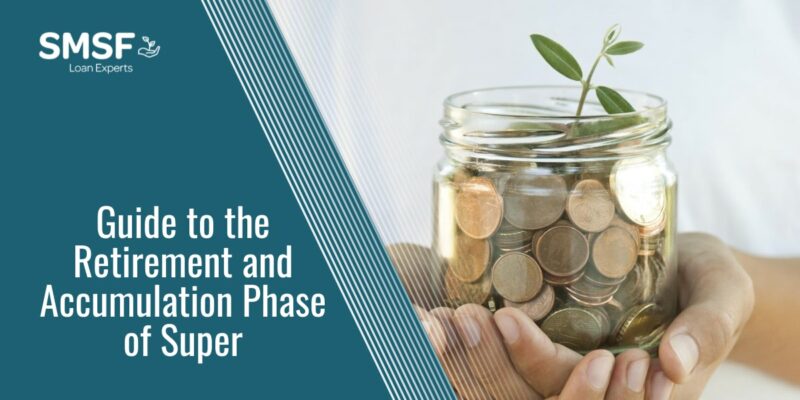With superannuation being made compulsory for employed workers in Australia since 1992, it’s become a crucial component of retirement planning. Understanding how superannuation works is important to many Australians, given what a significant portion of their financial wealth it will encompass when their retirement date arrives.
Two significant phases in superannuation are the accumulation phase and the pension phase. This guide aims to outline the key differences between these phases.
What is ‘accumulation phase’ super?
The Accumulation Phase is the initial stage of superannuation, wherein individuals contribute money into their superannuation fund to accumulate savings over time. During the accumulation phase, individuals are able to make voluntary contributions to their superannuation fund. These contributions can be either concessional (before tax) or non-concessional (after-tax).
Most employers will automatically make compulsory Superannuation Guarantee (SG) contributions to their employee’s super fund on their behalf. Under the SG system, employers are required to contribute a percentage of their employees’ ordinary time earnings (OTE) into their chosen superannuation fund. The minimum SG contribution rate effective as of the 1st of July 2023 is 11% of an employee’s OTE, although this rate may vary depending on government legislation or employment agreements.
Preservation
The accumulated funds in the accumulation phase are generally preserved and cannot be accessed until certain conditions are met, such as reaching the preservation age or meeting a condition of release (e.g., retirement, terminal illness, etc.).
Tax in the accumulation phase
Contributions made during the accumulation phase may be eligible for tax concessions, subject to certain limits. Investment earnings are generally taxed at a concessional rate, and capital gains may be eligible for discounted taxation.
What is the pension phase of super?
The Pension Phase, also known as the retirement phase, begins when an individual starts drawing an income from their superannuation savings. Before reaching the preservation age, individuals may be able to access a portion of their superannuation savings as a transition to retirement income stream.
How can I receive pension payments from my super?
Upon reaching the preservation age and meeting other conditions, individuals may be able to convert their superannuation savings into an account-based pension (also known as an allocated pension or retirement income stream). This provides a regular income stream during retirement. The pension payments are generally offered over a range of various options, including receiving regular payments at a frequency of their choice (e.g., monthly, quarterly, annually) or taking lump-sum withdrawals.
Preservation of an account-based pension
Once an individual commences the pension phase, there are generally no restrictions on accessing their superannuation savings. However, specific rules and limits may apply to ensure the longevity of the pension and prevent its depletion.
Taxation on a pension account
The tax treatment of pension phase income streams differs from the accumulation phase. Generally, the investment earnings and capital gains on assets supporting the pension are tax-free. Additionally, individuals aged 60 and over may be eligible to receive tax-free income payments from their superannuation pension.
What is the minimum pension payment?
The minimum payment amounts are calculated based on the super fund member’s age and the account balance at the start of the pension year.
Can I use rental income to supplement my retirement pension?
Your sources of income in retirement may vary, depending on your unique financial situation. For self-managed superannuation fund members who commence account-based pensions using their self-managed super fund balance, they may utilise rental income either inside or outside the superannuation environment to form part of their retirement income. Seeking professional financial advice is prudent to help make informed decisions based on individual circumstances and retirement goals.
Whether you currently hold an accumulation account or are looking to establish an account-based pension, if direct property investment within your SMSF is on your horizon, contact the team at SMSF Loan Experts.








